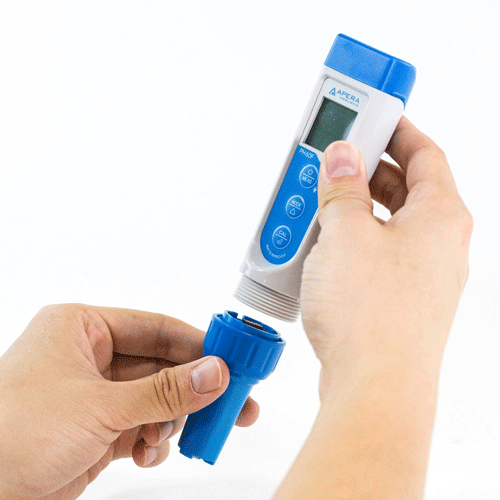Product added to cart
- Home
- Pure Water Blog
- Unveiling the Most Accurate TDS Meter: Your Guide to Crystal-Clear Water Testing (2024 Update)
Unveiling the Most Accurate TDS Meter: Your Guide to Crystal-Clear Water Testing (2024 Update)

In the vast and confusing world of water quality testing, one tool reigns supreme: the TDS meter. This nifty device measures the total dissolved solids (TDS) in water, giving you valuable insight into its purity and suitability for various applications. But with countless models on the market, choosing the most accurate TDS meter can feel like navigating a murky stream. Fear not, water warriors! This post dives deep into the key factors influencing accuracy, unveils top contenders, and empowers you to make an informed decision.
Demystifying Accuracy: What Makes a TDS Meter Tick?
Several factors contribute to a TDS meter's accuracy:
- Calibration: Regular calibration with standard solutions ensures consistent readings. Look for meters with easy-to-follow calibration procedures and high-quality calibration solutions.
- Temperature Compensation: Water temperature affects conductivity, impacting TDS readings. Choose a meter with automatic temperature compensation (ATC) for reliable results across varying temperatures.
- Probe Quality: The probe is the heart of the meter, directly interacting with the water. Opt for meters with durable, replaceable probes made from high-quality materials like titanium.
- Measurement Range: Ensure the meter's range covers the expected TDS levels of your water source. For example, aquarium testing requires a lower range than testing reverse osmosis systems.
Top Contenders: Unveiling the Champions of Accuracy
While the "most accurate" title depends on your specific needs, here are some highly-rated contenders known for their precision:
- HM Digital TDS-3: A popular choice for its reliability, accuracy, and affordability. It boasts automatic ATC, a wide measurement range, and a user-friendly design.
- Apera TDS20: This professional-grade meter shines with its advanced features like multi-point calibration, data logging, and replaceable probes. Ideal for serious hobbyists and professionals.
- HM Dital COM-100: This meter stands out for its exceptional accuracy and wide measurement range. It's perfect for scientific applications and demanding tasks.
Beyond the Big Names: Finding Your Perfect Match
Remember, the best meter is the one that caters to your specific needs and budget. Consider factors like:
- Frequency of use: Occasional testers might opt for a simpler model, while frequent users might benefit from a more advanced meter.
- Desired features: Do you need temperature readings, data logging, or specific measurement ranges?
- Portability: Choose a compact meter for on-the-go testing or a benchtop meter for lab use.
Remember:
- Calibration is key: Regularly calibrate your meter for accurate results.
- Read the manual: Familiarize yourself with your meter's features and proper usage techniques.
- Consider professional testing: For critical applications, consider professional lab testing for ultimate accuracy.
With this newfound knowledge, you're well-equipped to navigate the waters of TDS meter selection and choose the champion of accuracy for your needs. Happy testing!
Recent Posts
February 02, 2024
What's the Normal TDS for Drinking Water?
February 02, 2024
Unveiling the Most Accurate TDS Meter: Your Guide to Crystal-Clear Water Testing (2024 Update)
October 21, 2023
NPT vs. BSP Thread Types and Dimensions: A Comprehensive Guide
Archive
Tags
water purification
reverse osmosis
water filtration
water quality
drinking water
water contaminants
water treatment
clean water
RO system
water pressure
post-filter
safe drinking water
TDS meter
home water filtration
Total Dissolved Solids
clean drinking water
Water filtration systems
water filter
filter change
home appliances
household water
safe water
impurities
bacteria
pre-filter
filter efficiency
filter maintenance
filter replacement.
RO filters
sediment filter
carbon filter
reverse osmosis membrane
UV sterilization
waterborne pathogens
domestic reverse osmosis system
production rates
RO membrane
reverse osmosis systems
contaminants removal
fluoride removal
health
What filter removes 100% fluoride
How do you remove fluoride from tap water UK
Can fluoride be removed from tap water
How is fluoride removed
does boiling water remove fluoride
Fluoride removal from water
fluoride free water uk
fluoride removal filter
water filters that remove fluoride and chlorine uk



